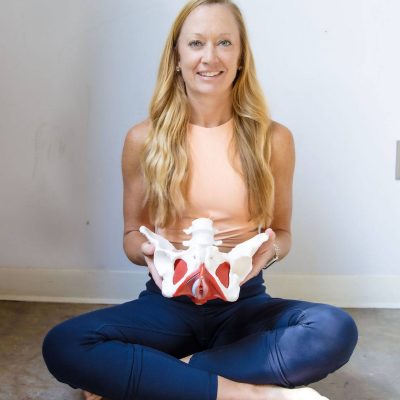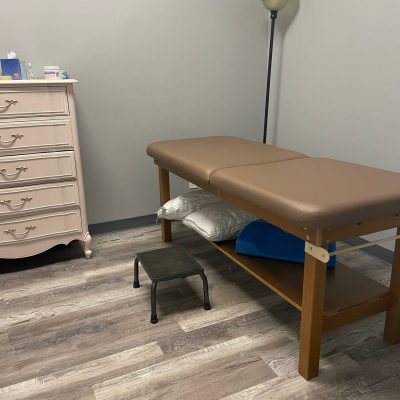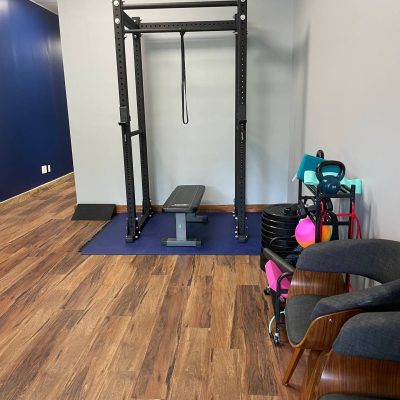Ever been in a foreign country and tried to order off of a long, complicated, alien looking menu? Did you use hand signals to describe the dish you wanted? Did you whip out your phone and hope Google has the answers? And, in the end, did you just close your eyes and trust that what landed on your plate was pork, not pizza? Yes, this situation can be frustrating, especially when you don’t end up getting what you want! Well, let me tell you a secret… when you’re in pain, your body is frantically waving hand signals, pointing at pictures, and speaking in a foreign language. Why? Because it needs you to give it what it wants.
Few of us think of pain as a language, and yet, it is. Foreign though it may be to many people, it is, in fact, a very detailed and specific way of communication. When you stub your toe, for example, your brain sends you a signal that something is wrong. You hop around looking sheepish for a while, but you also realize that putting a plaster over the nail, putting your foot up a bit, and wearing shoes next time is the right thing to do. So why would it be different when it comes to chronic pain? Back pains through to knee pains all have one thing in common: they’re signals from the body.
And if your body is speaking to you – and for some of you reading this, it might be screaming at you – it’s time to take some notice. But, that having been said, it’s a little easier said than done sometimes. If you’ve experienced ongoing, debilitating pain, it’s not always easy to listen properly. You might just not understand. And that’s why it’s absolutely vital to take a step back and start looking at the two most important factors that might be contributing to your pain: stress and diet.
Stress
For many of us, this five letter word has been so overused we don’t really understand what it means anymore. For some folks, general stress can push them forward, motivating them to challenge their professional and personal boundaries. But others – including many of you reading this now – might not even know what a holiday or ‘me-time’ is anymore. Quite possibly, you (and them) have been so focused on your work, family, or other activities, that you’ve not taken a moment to notice what the ongoing, accumulative stress is doing to your body.
You see, stress is a bit like moving a bucket of water from one end of a football pitch to the other. Continuously. You’re so focused on moving the bucket over the outer boundary that you don’t feel your knees and back giving way. You just keep going. Eventually – inevitably – the water spills and, well, you’re left to clean up the mess.
Yet what would happen if you set the bucket down? The boundary would be more attainable, you would start being critical about the ultimate goal of your back-and-forth race, and you would begin to slow down, look up the sky, and start contemplating a trip to the beach. What do I mean? You would start living the life you deserve and, miraculously, your knees and back just might have a chance to recuperate and heal, given that you take actions which facilitate this.
In the case of emotional stress, too, the concept remains the same. Because the brain processes stress as a trauma, akin in many ways to PTSD, it therefore suffers from the effects of anxiety and stress for a while after the body actually experiences them. Again, this type of stress needs to be dealt with. Action needs to be taken, otherwise the metaphorical bucket will always be close to tipping.
The pain in your pelvis, back, hips, and so forth, is your body telling you that something is very wrong with your routine. It’s time to listen. And, believe it or not, pain is not the only symptom of chronic stress: your appetite suffers too. Which brings us to signal number two…
Diet
So few people ever turn to how they fuel their body for answers relating to their chronic pain. And yet, there might be a direct link between the nutritional content of your food and the pain you’re going through.
Sugar, fat, and salt all contribute to the accumulation of a poor metabolism, fat storage in the body, poor blood pressure, and decreased circulation. The result? Pain. And sadly, as many people know, pain is really only the start. Cancer, diabetes, and a myriad of other diseases may well follow suit.
If you’re not sleeping, you’re experiencing chest pains, you’re suffering from panic attacks and headaches, and you’re feeling a general fatigue accompanying your pain, please take a look at what you’re ingesting. It’s absolutely vital to check-up on your diet.
Start including more vegetables and anti-oxidants into your diet. Include foods that are nutrient dense and well balanced. Decrease processed foods and drink more water. The key to health is to listen to your body, and a lack of appetite, an over-active appetite, or a generally nutrient deficient calorie intake, is a clear signal from your body to regroup and reconstruct your food choices.
Stress and diet are clear forms of language: when out of balance, they’re your body’s way of producing pain so that you are able to take notice and take action. Knowing which choices to make in order to alleviate your pain is absolutely vital. That’s exactly why we invite you to contact us, right now. For the best advice, professional hands-on physical therapy, and support you can count on, contact us today. We’re here to help. It’s time to start listening to your body, getting rid of stress, eating right, and accessing the pain free life you deserve.
Call us today and take action!
Magic City Physical Therapy
Hoover, AL







